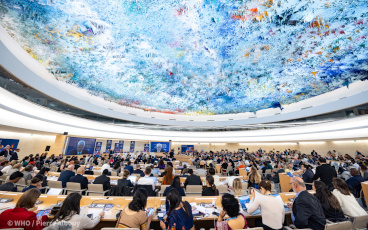New Study Highlights Decline in Vaccination Coverage in 2006-2011 in Afghanistan and Pakistan
Decline partially offset by use of new vaccines; new emergency plans in 2012 to reverse trend
1 July 2012 – The progress of the polio eradication campaign in Afghanistan and Pakistan from 2006 to 2011 has come under focus in a recent journal article by scientists from Imperial College, London. Published in the Lancet, the study found that declines in vaccination coverage led to a rise in the number of new cases between 2006 and 2011. This decline in coverage was partially offset by the use of new monovalent and bivalent vaccines that have proven to be more effective against the main circulating strain of the virus.
The study found that vaccine coverage in southern Afghanistan and parts of Pakistan, including Balochistan and the Federally Administrated Tribal Areas (FATA), declined from 2006 through 2011. Dr Kath O’Reilly from the Medical Research Council (MRC) Centre for Outbreak Analysis and Modeling at Imperial College London, who led the study, commented: “The new (bivalent and monovalent) vaccines appear to be more effective than the trivalent vaccine, which offers encouragement that polio eradication is achievable. But the best vaccine in the world will not work unless it reaches the children it is intended to protect.”
In 2012 both countries are implementing national polio emergency action plans to reverse the trend of declining coverage. Efforts are focusing on addressing the underlying challenges which prevent all children being systematically reached with polio vaccine. The emergency plans focus on increasing technical support for worst performing areas; making district-level leadership more accountable; increasing the demand for immunisation through social mobilisation; identifying and reaching mobile populations and underserved groups; and sensitive planning for immunisation campaigns to more accurately map out where children live and how best to reach them.
Early indications from the first half of 2012 indicate that these activities are beginning to improve the situation, with 22 reported cases in Pakistan to date compared to 58 in the same period in 2011. It is anticipated that Imperial College will conduct a follow-on analysis in the second half of 2012 to more clearly determine the full impact of the national emergency action plans on vaccination coverage.













